Abstract
Various sugars were administered intravenously to rabbits and the rate of exsorption from plasma to intestinal lumen was measured. The exsorption rates of lactulose, mannose, and xylose were directly related to their plasma concentration but varied according to their molecular weight. Wglucose and galactose did not appear in the intestinal lumen until very high plasma concentrations were reached. The mucosal barrier which prevented glucose and galactose exsorption was abolished when luminal phlorizin M times 10-minus 2 or another actively absorbed sugar was placed in the lumen. 2:4 Dinitrophenol M times 10-minus 3 and the absence of the sodium ion did not impair the ffficiency of the barrier. When the plasma glucose concentration was raised to very high levels, glucose began to appear in the lumen; further increases in the glucose concentration then produced a rapid exsorption of glucose.
Full text
PDF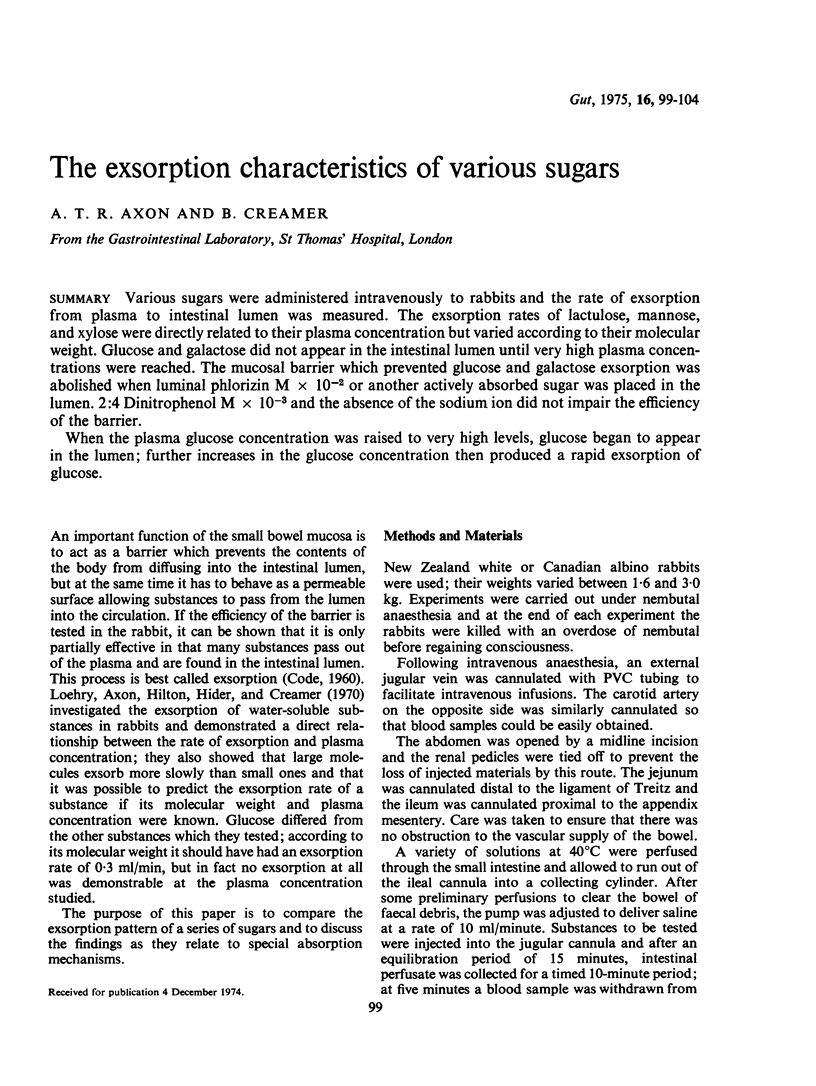
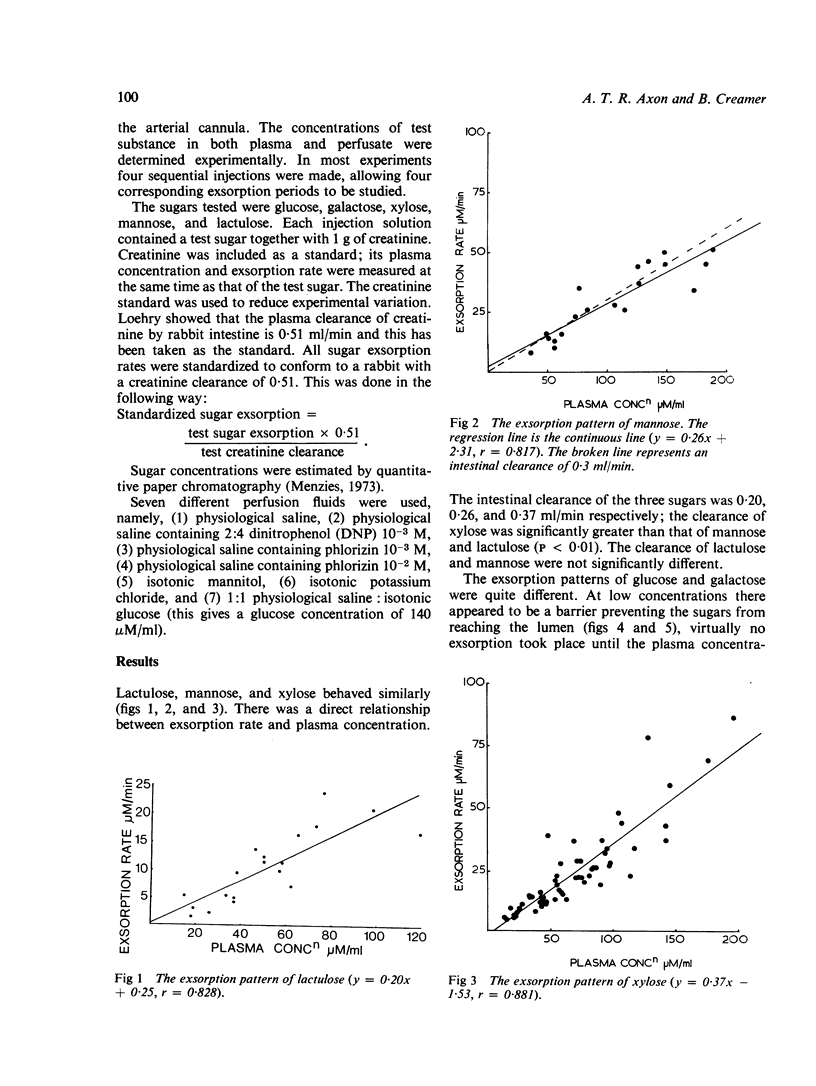
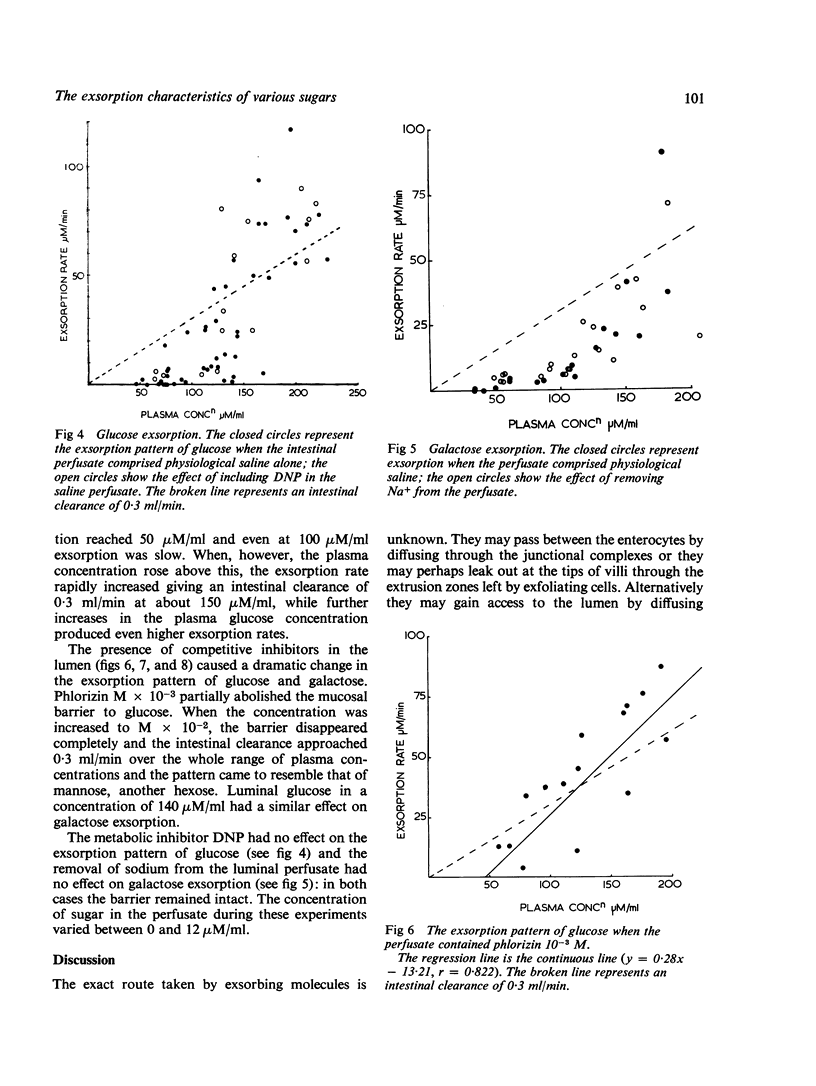
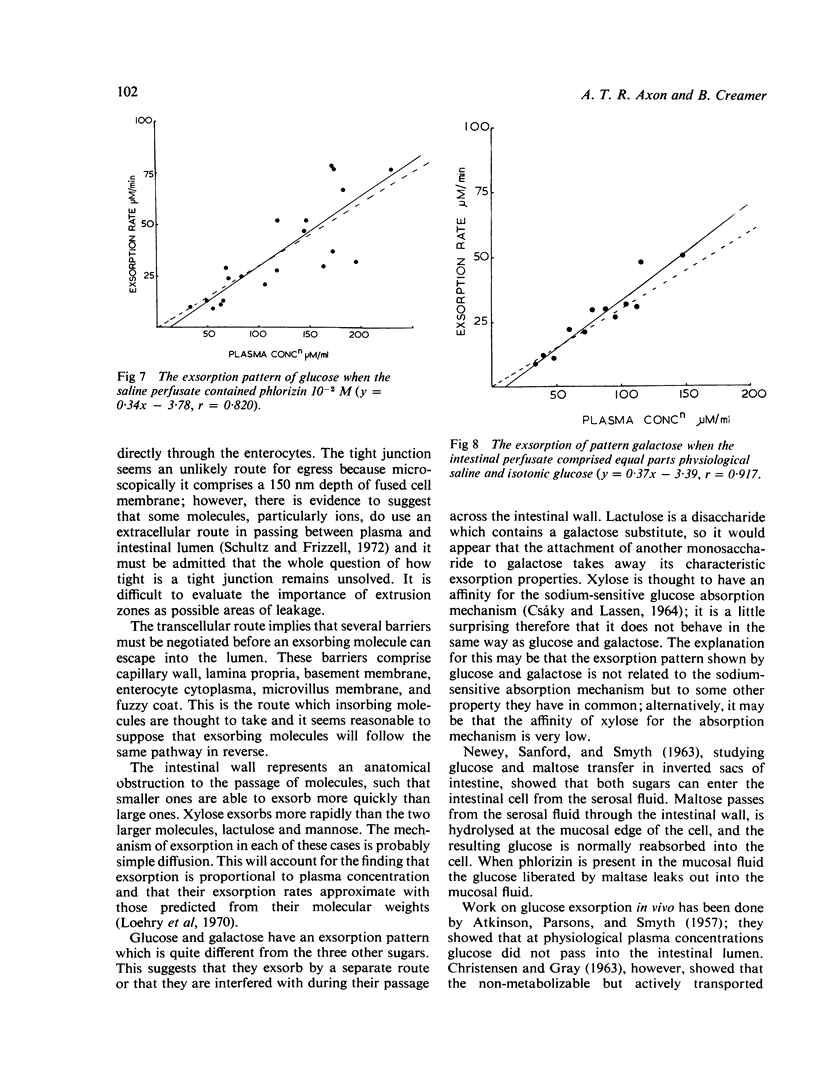
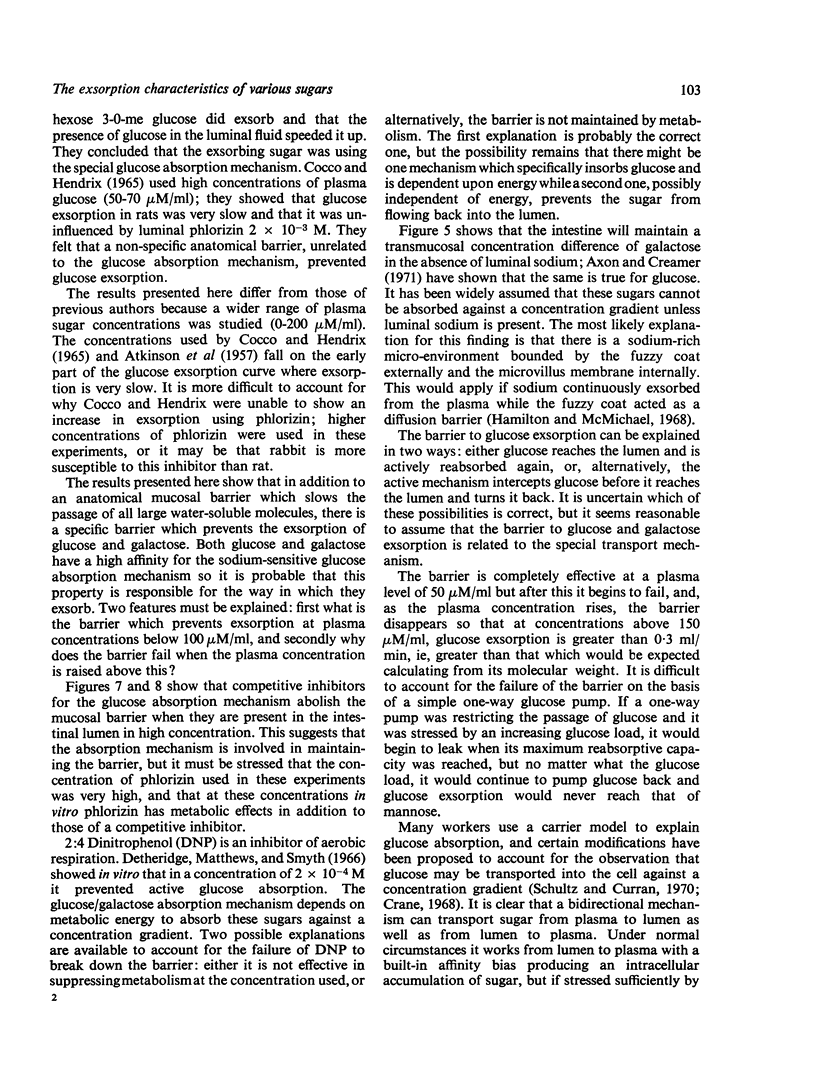
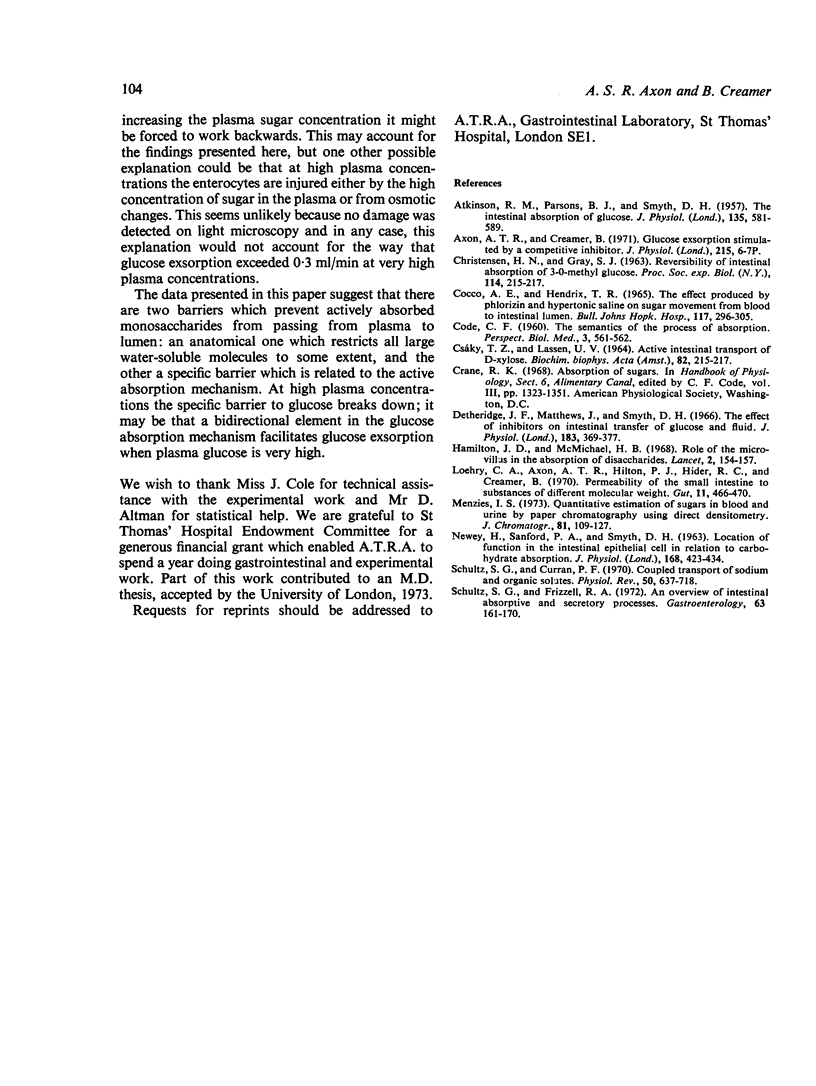
Selected References
These references are in PubMed. This may not be the complete list of references from this article.
- ATKINSON R. M., PARSONS B. J., SMYTH D. H. The intestinal absorption of glucose. J Physiol. 1957 Mar 11;135(3):581–589. doi: 10.1113/jphysiol.1957.sp005732. [DOI] [PMC free article] [PubMed] [Google Scholar]
- CHRISTENSEN H. N., GRAY S. J. REVERSIBILITY OF INTESTINAL ABSORPTION OF 3-0-METHYLGLUCOSE. Proc Soc Exp Biol Med. 1963 Oct;114:215–217. doi: 10.3181/00379727-114-28630. [DOI] [PubMed] [Google Scholar]
- CODE C. F. The semantics of the process of absorption. Perspect Biol Med. 1960;3:560–562. doi: 10.1353/pbm.1960.0022. [DOI] [PubMed] [Google Scholar]
- Detheridge J. F., Matthews J., Smyth D. H. The effect of inhibitors on intestinal transfer of glucose and fluid. J Physiol. 1966 Mar;183(2):369–377. doi: 10.1113/jphysiol.1966.sp007871. [DOI] [PMC free article] [PubMed] [Google Scholar]
- Hamilton J. D., McMichael H. B. Role of the microvillus in the absorption of disaccharides. Lancet. 1968 Jul 20;2(7560):154–157. doi: 10.1016/s0140-6736(68)90429-7. [DOI] [PubMed] [Google Scholar]
- Loehry C. A., Axon A. T., Hilton P. J., Hider R. C., Creamer B. Permeability of the small intestine to substances of different molecular weight. Gut. 1970 Jun;11(6):466–470. doi: 10.1136/gut.11.6.466. [DOI] [PMC free article] [PubMed] [Google Scholar]
- Menzies I. S. Quantitative estimation of sugars in blood and urine by paper chromatography using direct densitometry. J Chromatogr. 1973 Jun 27;81(1):109–127. doi: 10.1016/s0021-9673(01)82322-0. [DOI] [PubMed] [Google Scholar]
- NEWEY H., SANFORD P. A., SMYTH D. H. LOCATION OF FUNCTION IN THE INTESTINAL EPITHELIAL CELL IN RELATION TO CARBOHYDRATE ABSORPTION. J Physiol. 1963 Sep;168:423–434. doi: 10.1113/jphysiol.1963.sp007200. [DOI] [PMC free article] [PubMed] [Google Scholar]
- Schultz S. G., Curran P. F. Coupled transport of sodium and organic solutes. Physiol Rev. 1970 Oct;50(4):637–718. doi: 10.1152/physrev.1970.50.4.637. [DOI] [PubMed] [Google Scholar]
- Schultz S. G., Frizzell R. A. An overview of intestinal absorptive and secretory processes. Gastroenterology. 1972 Jul;63(1):161–170. [PubMed] [Google Scholar]


